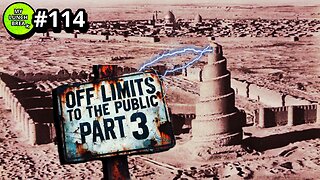Premium Only Content

How to Plan for Major Expenses
Planning for major expenses is crucial for maintaining financial stability and achieving your long-term goals. Whether it’s a home renovation, a new car, or an unexpected medical expense, having a solid plan in place can help you manage these costs without derailing your budget. By taking proactive steps and utilizing effective strategies, you can ensure that you’re well-prepared for significant financial outlays. Here’s a comprehensive guide to planning for major expenses to help you navigate these financial challenges with confidence.
1. Identify and Prioritize Major Expenses
The first step in planning for major expenses is to identify what these expenses might be and prioritize them based on their urgency and impact on your financial situation. Major expenses can vary widely but generally include:
Home Purchases or Renovations: Buying a new home or renovating your current one can be a significant financial commitment. Assess the cost of the property or project and determine how it fits into your overall financial plan.
Vehicle Purchases: Whether you’re buying a new or used car, or even leasing one, it’s essential to plan for this expense. Consider not just the purchase price but also ongoing costs like insurance, maintenance, and fuel.
Education Costs: Higher education expenses, including tuition, fees, and textbooks, can be substantial. Plan ahead for these costs, especially if you or a family member will be pursuing higher education in the near future.
Medical Expenses: Unexpected medical costs can be challenging to manage. Understanding your insurance coverage and setting aside savings for potential out-of-pocket expenses can help ease the financial burden.
Vacations or Major Life Events: Planning a significant trip or celebrating a major life event, such as a wedding, requires careful budgeting. Factor in all related costs, including travel, accommodation, and any special arrangements.
2. Create a Detailed Budget
Once you have identified the major expenses you need to plan for, the next step is to create a detailed budget. This budget should outline your income, expenses, and savings goals. Follow these steps to develop an effective budget:
Track Your Income and Expenses: Begin by tracking your monthly income and expenses to understand your financial situation. Use tools such as spreadsheets or budgeting apps to categorize and monitor your spending.
Allocate Funds for Major Expenses: Based on your tracking, allocate specific amounts for your major expenses. Ensure that your budget includes a category for savings dedicated to these expenses.
Adjust Your Spending: If your current budget doesn’t accommodate your major expenses, look for areas where you can reduce discretionary spending. For example, cutting back on dining out or entertainment can free up funds for savings.
Review and Adjust Regularly: Periodically review your budget to ensure it remains aligned with your financial goals and any changes in your circumstances. Adjust your budget as needed to stay on track.
3. Set Up a Savings Plan
Saving for major expenses requires a systematic approach to ensure you have the funds available when needed. Consider these strategies for setting up an effective savings plan:
Determine Savings Goals: Calculate the total amount you need to save for each major expense. Break down this amount into smaller, manageable goals to make saving more achievable.
Open a Dedicated Savings Account: Consider opening a separate savings account specifically for your major expenses. This can help you keep track of your progress and prevent you from spending the money on other items.
Automate Your Savings: Set up automatic transfers from your checking account to your dedicated savings account. Automating your savings ensures that you consistently contribute toward your goals without having to think about it.
Monitor Your Progress: Regularly review your savings account to track your progress toward your goals. Adjust your savings rate if necessary to stay on target.
4. Explore Financing Options
In some cases, you may need to consider financing options to cover major expenses. Understanding and comparing different financing options can help you make informed decisions:
Personal Loans: Personal loans can provide a lump sum of money for major expenses. Research various lenders to find the best interest rates and terms.
Credit Cards: Using a credit card for major expenses can be convenient, but be mindful of the interest rates and potential fees. Consider using a card with a 0% introductory APR if you plan to pay off the balance within the promotional period.
Home Equity Loans or Lines of Credit: If you own a home, you might consider a home equity loan or line of credit. These options use your home’s equity as collateral and can offer lower interest rates compared to unsecured loans.
0% Financing Offers: For specific purchases like vehicles or appliances, look for 0% financing offers. These promotions can help you sp
Read the full blog post here https://www.gerardyadgg.com/2024/09/how-to-plan-for-major-expenses.html
-
 1:13:00
1:13:00
Patriots With Grit
7 hours agoWill Americans Rise Up? | Jeff Calhoun
15.9K9 -
 14:55
14:55
Exploring With Nug
7 hours ago $6.61 earnedWe Found Semi Truck Containers While Searching for Missing Man!
36.6K5 -
 27:57
27:57
MYLUNCHBREAK CHANNEL PAGE
15 hours agoOff Limits to the Public - Pt 3
71.1K54 -
 38:07
38:07
Michael Franzese
8 hours agoLeaving Organized Crime and Uncovering Mob in Politics: Tudor Dixon and Michael Franzese
58.8K14 -
 2:42:54
2:42:54
Jewels Jones Live ®
2 days agoAMERICA IS BACK | A Political Rendezvous - Ep. 111
52.6K42 -
 8:47:33
8:47:33
Due Dissidence
1 day agoLIVE: Workers Strike Back Conference ft. Chris Hedges, Jill Stein, Kshama Sawant, and More!
97.7K55 -
 8:36:37
8:36:37
Right Side Broadcasting Network
5 days agoLIVE REPLAY: CPAC 2025 Day Three with President Donald J. Trump - 2/22/25
424K95 -
 1:05:34
1:05:34
The Big Mig™
16 hours agoConfirmed Kash Patel New FBI Director, Bring On The Pain |EP483
99K28 -
 53:59
53:59
Tactical Advisor
11 hours agoThe Vault Room Podcast 009 | Everyone Getting $5000?!
78.1K12 -
 2:04:44
2:04:44
TheAlecLaceShow
22 hours agoLive at CPAC | Interviews with Dean Cain, Rep. Comer and more! | The Alec Lace Show
85.3K5